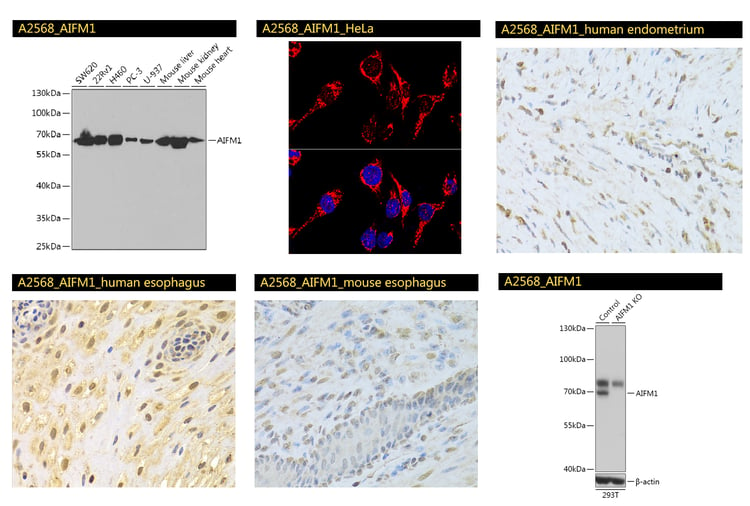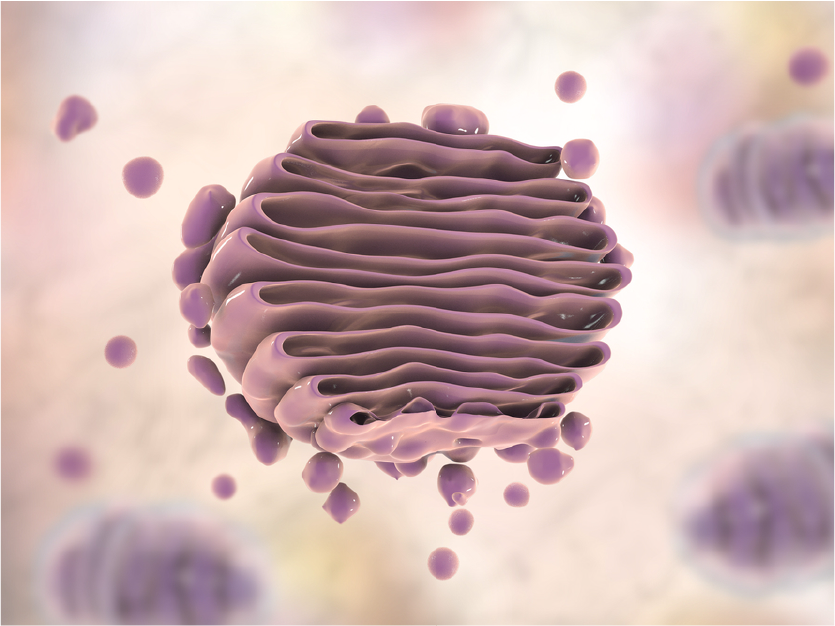AIFM1, also known as Apoptosis Inducing Factor (AIF), is a widely expressed flavoprotein that plays an important role in caspase-independent apoptosis. AIF normally exists in the mitochondrial intermembrane space.
Upon detecting apoptotic stimuli, the permeability of the mitochondrial outer membrane changes, and AIF is released from the mitochondria. AIF usually synthesizes a 67 kDa precursor protein, which is then transported into the mitochondria and hydrolyzed to remove the amino terminal mitochondrial localization signal and yield a mature 57 kDa protein. In many cells, the 67 kDa precursor protein is how AIF predominantly exists. Treatment of isolated and purified nuclei with recombinant AIF can lead to early apoptotic events such as chromatin condensation and large DNA fragment formation.
Recent studies have shown that AIF has dual functions: a pro-apoptotic activity that occurs in the nucleus, where AIF binds DNA; and an anti-apoptotic activity where AIF helps reduce free radicals through oxdoreductase activities to reduce stress within the cell. The proper regulation of AIF would appear crucial to determining whether a cell will continue to survive, or will be targeted for death.
AIFM1 Antibody
ABclonal's AIFM1 antibody (A2568) is a knockout-validated antibody that can be used in diverse applications such as Western blotting, immunohistochemistry, and immunofluorescence.

Apart from the functions mentioned above, AIFM1 also acts as a marker of mitochondrial organelles. Other similar mitochondrial markers include mitochondrial fission protein (FIS1) and mitochondrial membrane ATP synthase (ATP5A1).






